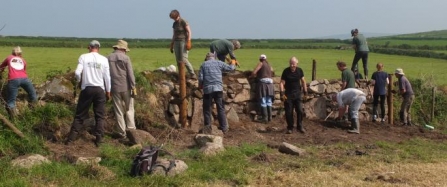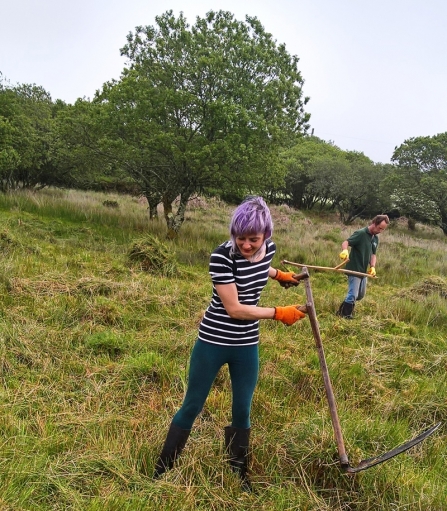The conservation volunteer groups help to deliver a ‘living landscape’ by improving and creating places for wildlife across the Cornish countryside. While Nature Reserves provide space for many rare and exciting plants and animals, Cornwall is 80% agricultural land, which must be farmed in a way that allows wildlife to survive beyond protected areas. The Trust’s farm advisers encourage a type of farming where food production and wildlife can both succeed. Farmers are under pressure to produce high quality food and cannot always prioritise wildlife conservation, so a helping hand from the volunteers can be a very welcome intervention. This often kicks off a positive relationship between farmers and the Trust which leads to other ways of working together for the benefit of wildlife and farm business.
South West Water often benefits from the work of the volunteers, especially in areas where drinking water is collected from rivers and reservoirs. The drinking water treatment process is challenged by soil, algae and pesticides when they are washed off agricultural land into the rivers. By using volunteers with scythes instead of heavy machinery, the risk of soil damage and erosion to rivers is reduced. Volunteers help maintain Cornish Hedges, which are not only superb for wildlife, but also provide a barrier to hold up surface flow and capture pollution before it gets to the river. Using hand tools to control weeds on riverside fields reduces the need for spraying pesticide, protecting the watercourse and benefitting South West Water and river wildlife.


